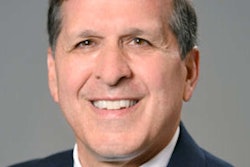
As we look at the rest of 2024 and beyond, a human resources (HR) compliance challenge looms over policy manuals, employee handbooks, and established HR norms. The National Labor Relations Board (NLRB) Stericycle decision is having ripple effects that are truly unprecedented.
Background
While the National Labor Relations Act (NLRA) applies to all unionized workplaces, it also has specific areas of applicability for nonunionized employers. One area that applies to all employers (union and nonunion) is section 7.
Section 7 mainly provides employees the right to engage in "concerted activities." These activities include the right for employees to discuss their wages, working conditions, and benefits with one another. These rights are protected, and employers can receive an NLRB lawsuit if an employee believes their rights have been infringed on during employment.
The NLRB's 2023 Stericycle decision was major, overturning previous, more employer-friendly decisions. This federal ruling applies to all businesses in all industries, with one or more employees.
No business is immune from these changes. This ruling significantly impacts HR policies on employee behavior and interactions with others. For more information on the Stericycle decision specifically, you can read our newsletter article.
What does the Stericycle decision mean?
The Stericycle decision has broad impacts on policy language in your policy manual/employee handbook, along with other communications. A few examples of policy language that would need to be revisited include the following:
- Expecting employees to be "positive" or to maintain a "positive work environment"
- Prohibiting false, profane, or malicious statements toward or concerning the employer or its employees
- Requiring employees to behave in a "professional manner" to promote efficiency, productivity, and cooperation
- Not tolerating conduct that may harm the business reputation>
- Restricting video and/or cell phone recording
These types of policies are often considered workplace "civility rules" and generally focus on how employees behave or communicate with one another, their managers, and the public, whether in person or online. These policies are often broadly written. Going forward, employers should consider tailoring their policies more narrowly to avoid running afoul of the Stericycle standard.
Important distinction: When you read the above paragraph, it's easy to think, "So my employees are now allowed to be rude to my patients??" Thankfully, no.
This is about specificity in the policy language and avoiding overly broad statements. As an employer, you are absolutely permitted to set standards for patient care and customer service.
Consider the difference between these two statements:
"When working and interacting with others, we expect you to be friendly and courteous so that everyone always feels welcome."
"When working and interacting with our patients, we expect you to be friendly and courteous so they feel welcome and are encouraged to keep coming back and referring others to our practice."
Based on the interpretations of the Stericycle decision, the first statement is problematic because it is too broad and could be interpreted to include interactions between employees and management. The second statement is narrowly focused on patient care and customer service.
What is the latest right now?
We are seeing additional fallout in the form of administrative law judge decisions. So far these cases have mostly involved large companies such as Starbucks and General Motors. The recent decisions have impacted policies on solicitation, nondisclosure, off-duty conduct, and media contact.
On the surface, this can seem frightening and go against decades of HR norms. However, some policies on conduct or abusive language have been approved by recent decisions.
As with anything policy or HR-related, the details matter. It's about diving into every word in the policy and analyzing it from this new perspective.
What do we do?
We, along with labor attorneys nationwide, are advising a careful re-read of employer policies through the lens of the Stericycle ruling. Carefully consider all the ways employees can engage in section 7 rights and then scrutinize the language used in any policy.
Could an employee interpret the language used in those policies as infringing on their rights? If the answer is maybe or yes, then those policies should be removed or rewritten.
If you are a Bent Ericksen & Associates' client, you have already received policy updates to the following policies. If you have other written policies or written statements that are shared in a different way, they could be problematic and should be reviewed. These statements include the following:
- Our philosophy
- Mission/Vision/Values statements
- Employer-employee relations
- Conduct guidelines
- Computer, email, and internet usage
- Social media
- Personal telephone, cell phone and smartphone use
We strongly encourage you to review any policies that address employee attitudes, behavior, professionalism, etc. Also, given how fresh and chaotic the situation is right now, we recommend seeking a second opinion from an HR professional or labor attorney who is familiar with the latest information. If you have questions, please contact us for further assistance.
Alan Twigg is a co-owner at Bent Ericksen & Associates, a human resources and personnel management authority in the healthcare industry. For over 10 years, Twigg has helped clients through the ever-changing world of HR and employment compliance. He is a speaker, consultant, and author.
The comments and observations expressed herein do not necessarily reflect the opinions of DrBicuspid.com, nor should they be construed as an endorsement or admonishment of any particular idea, vendor, or organization.



















